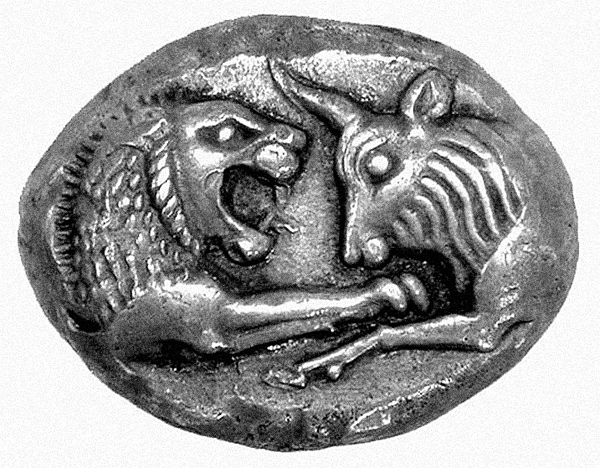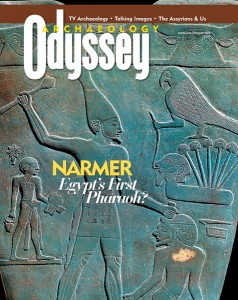Origins: Filthy Lucre
A simple invention, coins, completely transformed the world.

For more than 30 years now, people have been singing along to the rock band Pink Floyd’s song “Money,” which bemoans our monetized existence: “Money, so they say / Is the root of all evil today. / But if you ask for a raise it’s no surprise that they’re giving none away.”
Indeed, few moments go by when we are not thinking about money, worrying about money, wishing we had more money. Not surprisingly, money even plays a prominent role in some of the Western world’s earliest literature. One of the plays by the Greek comedian Aristophanes (c. 448–388 B.C.), for example, is titled Ploutos (Wealth) and has some lines that are almost indistinguishable from those in Pink Floyd’s “Money.” Blepsidemus, the protagonist’s friend, for example, complains that “there’s no trace of goodness in anyone; the lust for profit rules the world.”
Although Aristophanes’ generation used money more or less as we do, that had not been the case for very long. Only a century and a half earlier, in the mid-sixth century B.C., did small stamped pieces of precious metal begin to circulate around the Aegean as money. The extraordinary usefulness of this invention is apparent in how quickly the idea spread. Soon, most of the Greek-speaking world was using coins, and then so were peoples in North Africa, the Levant and elsewhere.
Already a library member? Log in here.
Institution user? Log in with your IP address.

